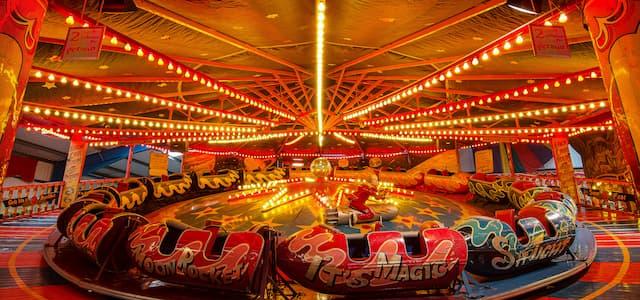
Saved for the nation: rare naval medal of Foundling Boy who served under Nelson aboard HMS Victory
A rare medal belonging to William South, a former pupil of the London Foundling Hospital, who served on HMS Victory under Admiral Nelson, has been acquired by the Founding Museum.

A very significant addition to the collection, it is the only medal of its kind the Museum has that relates to a foundling boys' military service in the 18th and 19th centuries.
Foundling boys served in the army and navy from 1760s onwards, however, prior to this acquisition, the Museum’s collection of medals related to the First and Second World Wars.
The acquisition was made possible with a £3,840 grant from the National Heritage Memorial Fund, an anonymous donation and a contribution from the Museum’s Collection Purchase Fund.
William South was born in 1787 at Downham on the Isle of Ely, Cambridgeshire. Having been abandoned at the Parish Workhouse, William was admitted to the Foundling Hospital. On 25 April 1803, after two unsuccessful apprenticeship indentures and in the company of the Hospital’s schoolmaster, William attended the Office of the Marine Society, a charitable organisation which trained boys for service in the Royal Navy. Two days later, the sixteen-year-old William appears on the Muster Roll of H.M.S. Victory as a Boy 3rd Class, one of 54 boys on board. William served First Lieutenant John Quillian, who later would command H.M.S. Victory at Trafalgar after Nelson was wounded.
Nelson's mistress, Emma Hamilton took a keen interest in the Foundling Hospital and a fascinating correspondence exists between her and Hannah Johnson, the Hospital’s Matron. In May 1803, Hannah wrote to Emma about William with great affection, describing him as ‘a good boy…very clever…’ revealing that ‘he has no friend in the world – never having been inquired after since put in there an Infant…’, and asking if Nelson could be alerted to William’s presence on board his ship.
Sue Bowers, Head of NHMF, said ‘What makes this service medal particularly special is the story it tells about the ordinary people, in this case William South, who were at the heart of extraordinary moments in our history. It reminds us that all our stories are part of the greater heritage of our nation, each with an important part to play. We, at the National Heritage Memorial Fund felt it fitting that William’s medal should join the collection at The Foundling Museum, the place that put him on the path to Victory.’
The Naval General Service Medal was a campaign medal issued to officers and men of the Royal Navy in 1849. This medal and its army counterpart, were amongst the first British campaign medals issued to all ranks. It was awarded retrospectively for naval actions between 1793–1840, a period that included the French Revolutionary Wars, the Napoleonic Wars and the Anglo-American War of 1812. Substantially fewer medals were issued than there were men who saw action, because they were not awarded posthumously, and because general illiteracy limited the numbers who applied. Having been raised by the Foundling Hospital, William could read and write, and his medal’s two clasps, Java and Algiers, relate to his service on board H.M.S. Psyche.
On leaving the navy, William married, had children and worked as a publican. In 1871, he was awarded a Special Naval Pension, which he received annually until his death in 1875.
The medal will be a highlight of a major exhibition at the Foundling Museum during 2020.
Notes to Editors
The Foundling Museum explores the history of the Foundling Hospital, the UK’s first children’s charity and first public art gallery, and through a dynamic programme of exhibitions and events celebrates the ways in which artists of all disciplines have helped improve children’s lives for over 275 years.
The Foundling Hospital, which continues today as the children’s charity Coram, was established in 1739 by the philanthropist Captain Thomas Coram, as ‘a hospital for the maintenance and education of exposed and deserted young children’. Instrumental in helping Coram realise his vision were the artist William Hogarth, who encouraged leading artists of the day to donate work, and the composer George Frederic Handel, who gave annual benefit concerts of his Messiah. In doing so, they created London’s first public art gallery and set the template for the way in which the arts can support philanthropy.
Coram has been creating better chances for children since 1739. They help children and young people today through their pioneering work in adoption, parenting support, housing support, alcohol and drug education, creative therapies and championing legal rights in the UK and overseas. www.coram.org.uk
Press Enquiries
Joanna Bolitho, Marketing & Communications Manager, Tel: +44 (0)20 7841 3592, email: joanna@foundlingmuseum.org.uk
Visitor Information
The Foundling Museum, 40 Brunswick Square, London WC1N 1AZ. Tel: +44 (0)20 7841 3600, email: enquiries@foundlingmuseum.org.uk
Open: Tuesday - Saturday 10:00 - 17:00, Sunday 11:00 - 17:00, Monday closed
Admission: Adults £13.20 with donation, £12.00 without donation / Concessions £9.90 with donation, £9.00 without donation.
Free for 21 and under, Foundling Friends & National Art Pass holders.
Tube and train: Russell Square, King’s Cross St Pancras and Euston

